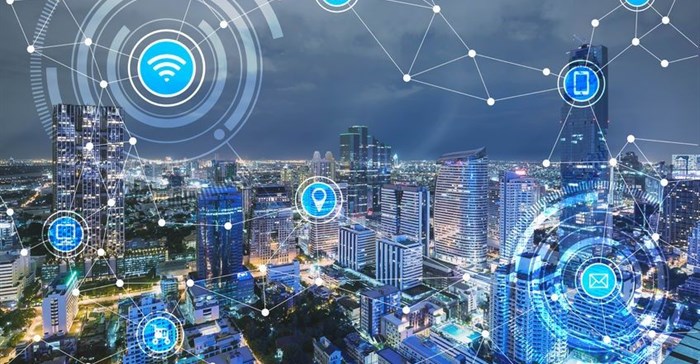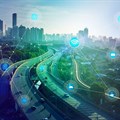Harnessing tech to create sustainable cities for the future

Today, we order food, clothes, and all manner of services with just three simple taps. We do our banking on the go, paying salaries while sitting in traffic!
Technology continues to shape the very fabric of our lives, and this dependence is only likely to accelerate given that, in 2010, we passed the historic milestone of having the majority of the world's population live in cities. With this in mind, sustainability must become a key priority for business leaders and policymakers around the world.
Leveraging data
Today, information technology has the unique capability of being able to capture the ever-increasing amounts of information generated in the world around us – whether it is sensors that monitor traffic on the roads, the passage of water through pipes or the GPS signals from mobile phones.
Every day, advanced technology is providing us with more detailed information about the services we depend on - and improvements in data communications are allowing us to combine real-time data with existing information. At the same time, recent developments in analytic algorithms mean that, more than ever before, we can gain new insights from this rich data store to help us make smarter decisions.
Developing ‘smart’ infrastructure
It's becoming more and more evident that people want to live in cities where there's a high quality of life and where services are delivered seamlessly and efficiently. As a result, these demands are placing a huge strain on city infrastructures and the planet's resources at large.
We now need a "smarter" approach to delivering vital services, such as transportation, logistics, healthcare, education, public safety, energy and water delivery.
Notably, it's estimated that lost productivity and energy use due to traffic congestion alone wastes between 1% and 3% of the world's gross domestic product!
Early signs of success
Encouragingly, work has already begun in cities around the world to make cities smarter and more energy efficient. For example, Singapore, Brisbane and Stockholm are all working to reduce both traffic congestion and air pollution through intelligent transportation solutions, including predictive tools to route vehicles around traffic accidents.
Several cities in Italy, the island of Malta, as well as the US state of Texas are using smart electric meters and instruments to make their power grids more stable, efficient and ready to integrate renewable energy sources and electric vehicles.
In an innovative project in Glasgow, new system insights are helping the council develop strategies to provide affordable warmth to vulnerable citizens - while making progress towards the city's 2020 reduction targets for CO2.
Rotterdam is adopting a monitoring and forecasting system to support both its water and energy that uses real-time information to manage infrastructure and operations related to the effects of climate change.
China is introducing high-speed trains and expanding its rail network between cities, adding 25,000 miles of track between now and 2020. The goal is to fuel economic development without increasing automobile or truck traffic.
In South Africa, we are beginning to develop our own smart cities and smart communities, although there are challenges around legacy infrastructure and ever-changing local leadership.
Looking ahead, every city and community will be forced to adopt certain technology tools and platforms in order to attract people and talent – and also to remain up to speed with increasingly stringent environmental and sustainability standards.
For both people and the environment, technology is a powerful tool that can be leveraged for positive change and sustainable development!



























